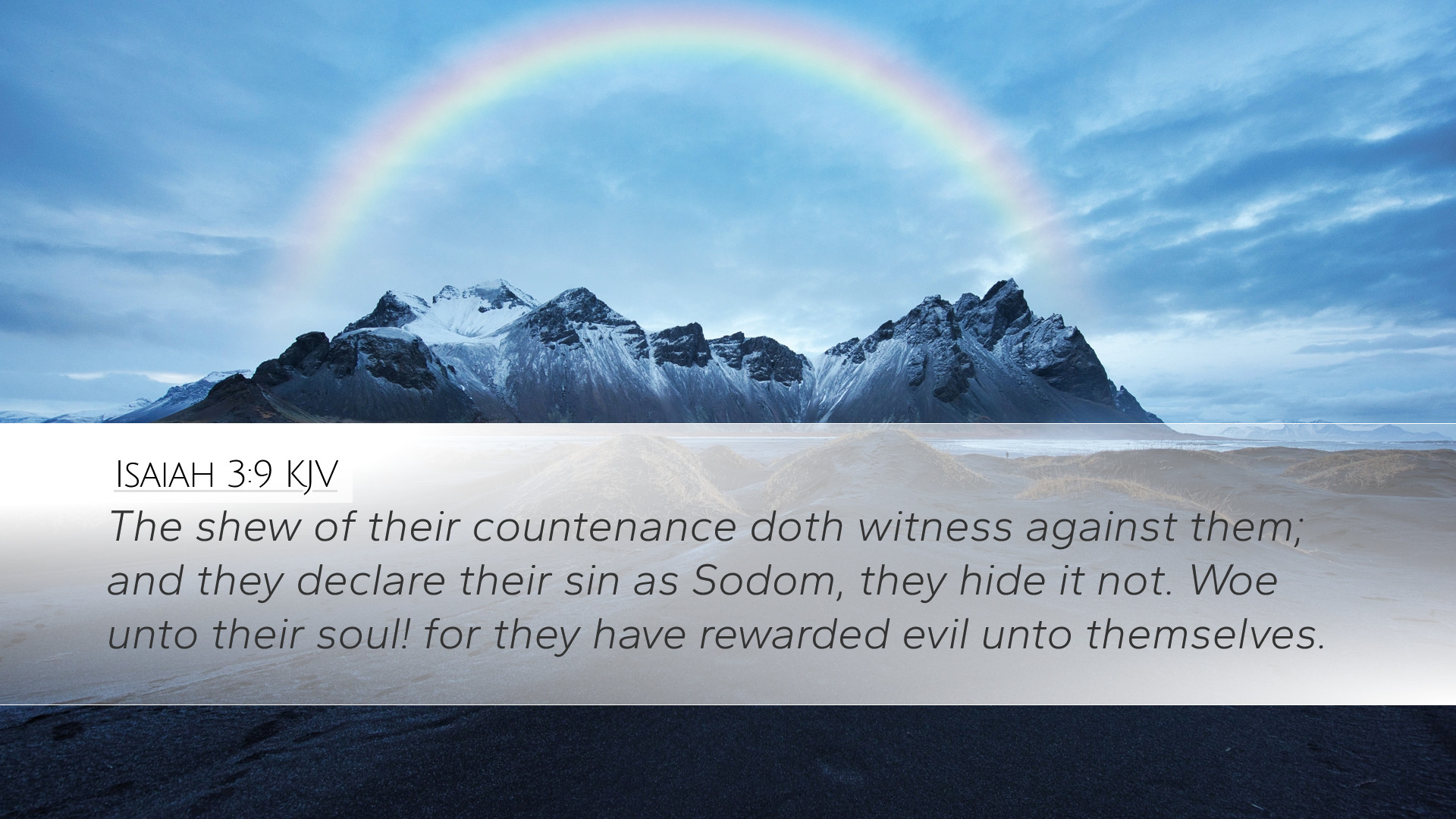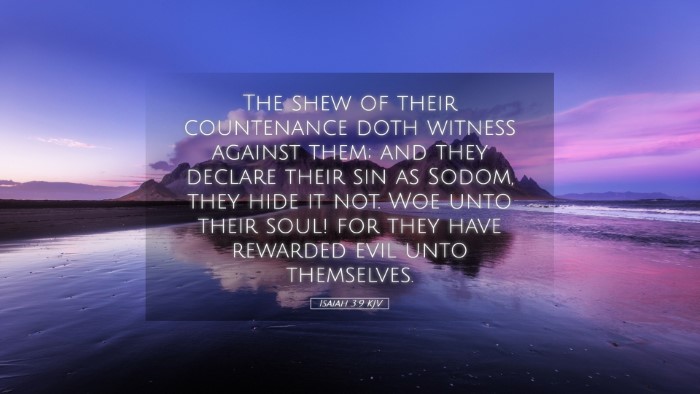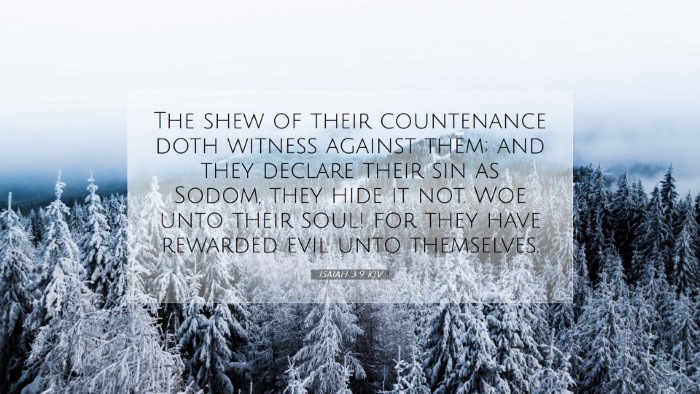Commentary on Isaiah 3:9
Verse Context: Isaiah 3:9 states, "The look on their countenance witnesses against them; they declare their sin as Sodom; they do not hide it. Woe to their soul! For they have brought evil upon themselves." This verse falls within a prophetic judgment against Judah and Jerusalem, highlighting the moral decay of the people and the impending consequences of their actions.
Historical Context
The context of Isaiah's ministry was during a time of significant social and political upheaval in Judah. The nation was facing threats from powerful empires such as Assyria. This led to a sense of insecurity that often resulted in moral laxity, with leaders and laypeople alike falling into gross sin.
Exposition of the Verse
Isaiah 3:9 utilizes vivid imagery to convey the state of the people. Their countenance, or facial expression, becomes a witness against them, indicating that their very demeanor betrays their internal corruption. According to Matthew Henry, this highlights how the people are not only aware of their sins but also unrepentant, as their "look" openly displays their guilt.
- Moral Transparency: The phrase "their countenance witnesses against them" suggests that the condition of their hearts is reflected physically. Albert Barnes notes that a person's inner moral state can be betrayed through their outward expressions.
- Open Sinfulness: The reference to declaring their sin "as Sodom" emphasizes a bold and explicit rejection of God’s standards. Adam Clarke remarks that the people of Judah flaunted their sins, akin to the people of Sodom, who were notorious for their pride and wickedness.
- Self-Induced Judgment: The woe pronounced in this verse signifies impending doom, not from an external power, but from their own actions. Matthew Henry asserts that "they have brought evil upon themselves," indicating accountability for their moral choices.
Theological Insights
This passage raises critical theological reflections regarding the nature of sin and the human condition. Albert Barnes affirms that there is a divine law observed in the character of individuals, which they violate at their peril. The boldness in sin leads to divine wrath, which is a recurrent theme in prophetic literature.
Sin and Society
Isaiah's lament points toward a broader societal decay where corporate sin leads to national judgment. Adam Clarke emphasizes that the consequences of sin are not isolated—they affect families, communities, and nations. The social implications of unchecked immorality are dire.
Call to Repentance
In Isaiah 3:9, there lies an implicit call to repentance. The recognition of sin as public and undeniable serves to provoke a response from its practitioners. Matthew Henry argues that acknowledgment of transgressions is an essential step toward healing and restoration. The people’s boldness in sin is contrasted with the need for humility before God.
Pastoral Applications
For pastors and spiritual leaders, Isaiah 3:9 is a poignant reminder of the importance of leading with integrity. The verse serves as a call to cultivate a culture of transparency and accountability within the church.
- Encouraging Confession: Pastors must create environments where confession and repentance are normalized. A culture of open discussion about sins leads to healing, as seen in James 5:16.
- Modeling Humility: Leaders can demonstrate humility by acknowledging their failings, fostering a community that mirrors the heart of God.
- Preaching Truth: Like Isaiah, preaching boldly against sin, while coupled with invitations for repentance, aligns with Scripture's intention to bring reconciliation with God.
Scholarly Reflections
From a theological and scholarly viewpoint, Isaiah 3:9 allows for robust discussion on the nature of sin, social justice, and God’s wrath. Scholars may focus on the historical fulfillment of these prophecies and draw parallels to contemporary society.
- Comparative Analysis: Examining similar themes in other prophetic books (e.g., Jeremiah, Ezekiel) allows for a comprehensive understanding of God's unchanging stance on sin.
- Modern Application: Analysis of how societal values reflect those present in Isaiah's time serves to highlight the need for ongoing vigilance in moral character within the church today.
- The Role of Prophets: Understanding Isaiah's role as a prophet amidst moral decline provides insight into the challenges faced in communicating difficult truths.
Conclusion
Isaiah 3:9 speaks profoundly to issues of moral decay, accountability, and the nature of sin. This verse encapsulates the dire consequences of a community that flaunts its sins and neglects the call to righteousness. For pastors, students, theologians, and scholars, it necessitates a reflective posture regarding the impact of sin both personally and corporately, with a hopeful lens toward repentance and restoration.


